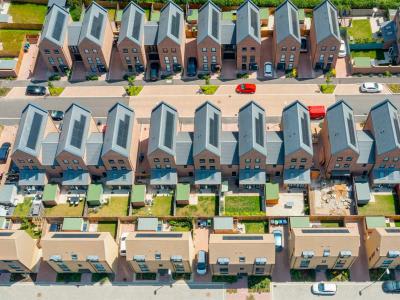As of mid-2025, South Africa's real estate market is showing signs of cautious optimism, largely influenced by recent political developments and economic reforms:
Political Environment
Following the May 2024 general elections, South Africa formed a Government of National Unity (GNU). This coalition has brought a degree of political stability and renewed public confidence, which is positively impacting investor sentiment and the broader economy
Economic Indicators
- Inflation has declined from 5.3% in early 2024 to around 3.8% by October 2024, staying within the South African Reserve Bank’s target range.
- This has allowed for interest rate cuts, with expectations of further reductions in 2025, which could stimulate property buying activity.
Real Estate Trends
Residential Market: There is a growing demand, especially in coastal towns such as Hermanus, Plettenberg Bay, and Umhlanga. These areas are benefiting from the ongoing semi-urban migration trend, where people move from major metropolitan areas to smaller, lifestyle-rich towns.
Security Estates & Sectional Titles: Due to safety concerns and affordability, there's a shift toward gated communities and sectional-title properties, which are becoming increasingly popular across demographics.
- Western Cape remains a top performer, with property prices rising 39% between 2019 and 2023. KwaZulu-Natal and parts of the Eastern Cape are also seeing strong growth.
Global Influence
While domestic factors dominate, international politics, such as the economic policies of the U.S. under President Trump, can indirectly affect the South African market. For instance, a weaker rand due to global uncertainty could lead to higher inflation and interest rates, which might dampen local demand.
Challenges
- Unemployment and the need to reduce the size of the public sector remain pressing issues.
- Land reform policies continue to be a concern for some investors, especially in the agricultural property sector.
- Here are some of the best areas to invest in real estate in South Africa in 2025, based on current market trends and political-economic stability:
Western Cape
Cape Town: (Atlantic Seaboard, City Bowl, Southern Suburbs): High demand, strong long-term returns, and resilient property values. Ideal for luxury apartments and short-term rentals due to tourism and corporate travel.
False Bay & Western Seaboard: Offers better value with lower entry prices while still benefiting from Cape Town’s economic strength.
Stellenbosch & Somerset West: Gated estates and lifestyle properties are in high demand.
Gauteng
Midrand & Pretoria East: These areas are thriving as lifestyle hubs with good infrastructure and access to business districts.
Sandton & Rosebank (Johannesburg): Still attractive for high-end investors, especially in mixed-use developments and secure estates.
KwaZulu-Natal
Umhlanga & Ballito: These coastal towns are booming with new developments, lifestyle estates, and strong rental demand. They’re especially popular among semigrants and retirees.
Eastern Cape
Gqeberha (Port Elizabeth) and Jeffreys Bay: Emerging as affordable coastal alternatives with growing infrastructure and tourism appeal.
Investment Tips
- Sectional-title units (like townhouses and apartments) are in high demand due to affordability and security.
- Rental markets in the Western Cape and Gauteng are especially strong, with low vacancy rates and high tenant demand.
- Short-term rentals in tourist-heavy areas like Cape Town and Umhlanga offer high yields.
This dynamic property landscape aligns perfectly with the expertise and services offered by RSM South Africa. Whether advising on investment strategies, conducting market analyses, or offering tax and financial planning solutions, RSM South Africa provides tailored guidance to help clients navigate these evolving opportunities. With our deep understanding of local markets and global insights, we are well-equipped to support investors in making informed decisions that maximise returns in South Africa's thriving real estate sector.





